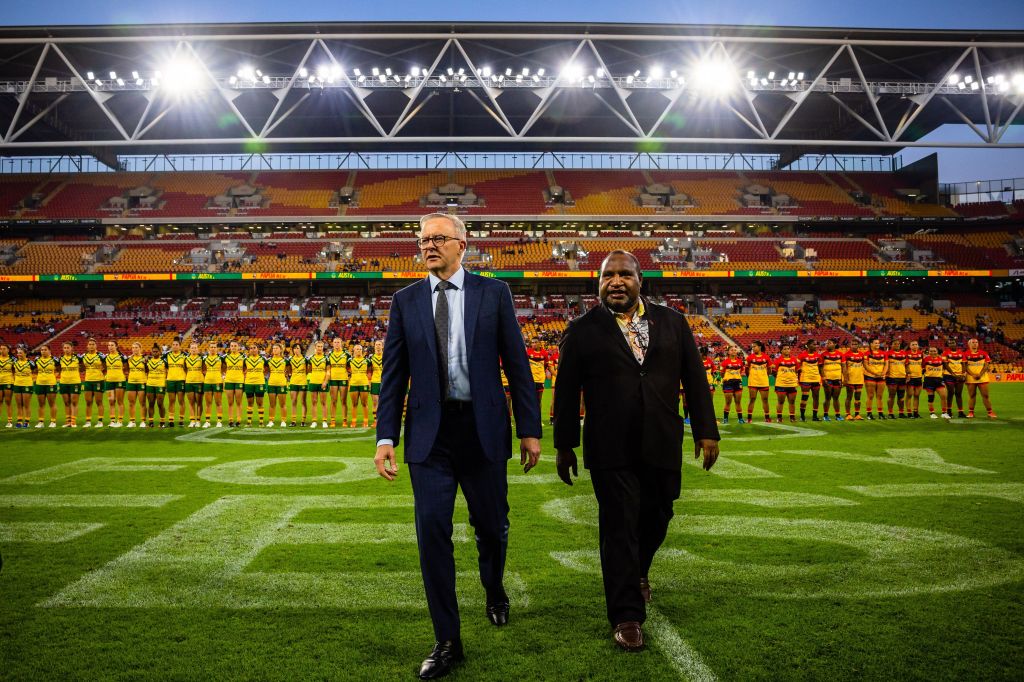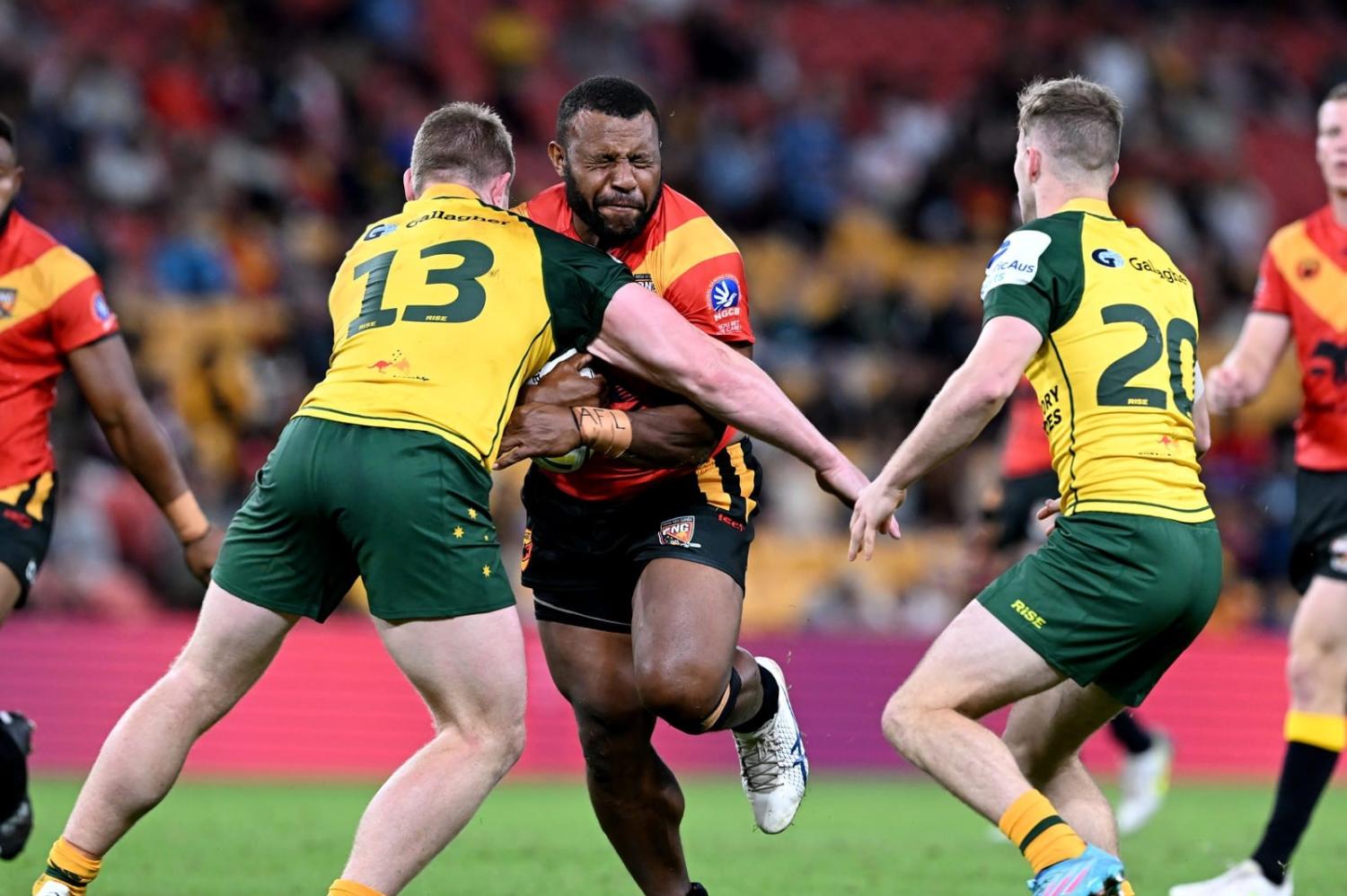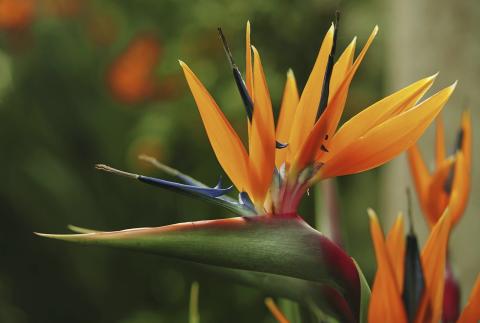Excitement is building around Papua New Guinea’s bid to have its own team in the Australian National Rugby League (NRL). Australia is providing big bucks – $600 million over 10 years – to PNG, in addition to technical support, to put together a strong bid. But it is not a done deal. PNG Prime Minister James Marape said at a Lowy Institute address last month that PNG’s bid will ultimately be assessed by the NRL on merit, with a decision to be made in 2027.
There is a strong case for PNG to join the NRL. Marape sees rugby league as part of a broader national unification policy, with the sport being used to promote peace and ethics in a country racked with tribal fighting and high crime rates. His backing is reminiscent of Nelson Mandela’s support for rugby union, which helped unite South Africa as it emerged from the apartheid era.
Over the years, PNG has slowly entered Australian rugby league with limited success. Work on an NRL bid began more than a decade ago, with the PNG government initially setting up an office to formulate a bid, though it suffered political infighting and misuse of funds. While the NRL bid stalled, PNG was successful in having the SP Hunters team enter the state-based Queensland Cup in 2014. Australia and PNG have also held an annual test called the Prime Minister’s 13 (PM13) match since 2005.
For Australia, sports diplomacy is not new. Australia has engaged with PNG before under its PacificAus Sports program, supporting PNG’s national rugby league and netball teams compete at major international events. PNG athletes have also been assisted in their preparations to compete in the Olympics and Commonwealth games. Australia has also used its Team Up program to deliver development outcomes, provide awareness and assistance in health, and forge links between institutions as well as people.

Australia’s financial commitment to PNG’s NRL bid isn’t small. Although separate from Australia’s grant program, the A$5.5 million committed last year, and the A$60 million promised annually, amount to a tenth of the grants Australia provides to PNG each year.
Despite the use of sports in building relationships and delivering development, it is difficult to justify the large financial contribution to facilitate a rugby team when grant levels in two important development sectors have fallen. Real (adjusted for inflation) health grants provided to PNG pre-Covid fell to be a quarter lower than 2011 levels. The fall in real education grants has been far worse, 44 per cent lower in 2021 than they were in 2010.
PNG’s development needs cannot be overstated. Extreme poverty defines the lives of 40 per cent of its population and the country has the lowest Human Development Index rating in the Asia-Pacific region. Further, PNG has the highest infant mortality rate, at 34 per 1,000 births, and the lowest pre-primary net enrolment rate in the region.
The violence and unrest in Port Moresby on 10 January also points to persistent issues with law and order that PNG is ill-equipped to address.
Care is also needed as rugby league can be leveraged for political gain, which would be hard for Australia to justify. This was evident in 2022 when a PM13 match held in Brisbane saw a PNG contingent comprising 72 members of parliament travel to attend the game. This trip, paid for by the PNG government, was seen to reward MPs for voting in Marape to the top job shortly following the country’s elections. Against more pressing development needs, the trip cost more than K3 million (A$1.2 million).
It is not difficult to see Australia’s support for PNG’s NRL bid scoring diplomatic points given many PNG MPs follow the sport passionately. But PNG’s development needs must remain the top priority in all of Australia’s bilateral programs with the country. This is important given PNG recently signed a security agreement with Australia, has increased labour mobility by establishing the Pacific Engagement Visa, and is currently pursuing a free trade agreement. In addition, the nature of official development finance provided to PNG is changing, with the majority shifting from grants to loans.
While many Papua New Guineans are avid rugby league fans, support (particularly financial) for an NRL bid by both the PNG and Australian governments may end up becoming a case of misplaced priorities. A recent survey of everyday Papua New Guineans found a desire for self-reliance and economic independence. Investment in human capital and opportunities for education and training for young people was cited as central to building PNG’s ability to be self-reliant in the future.
Partnerships such as the PNG NRL bid program, pushed at government-to-government level between political leaders, are not always what is needed elsewhere in PNG society. It is hard to put a price tag on the potential benefits that rugby brings in drawing Australia and PNG together, but clearly the social benefits of sports need to be captured at an affordable price.


